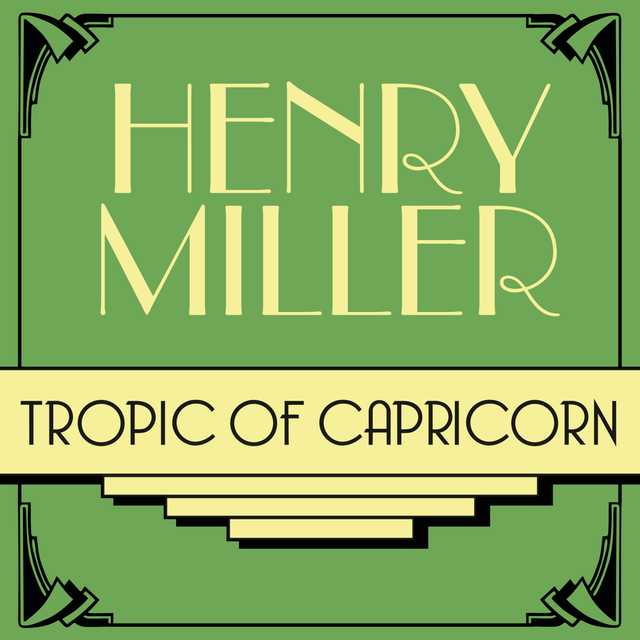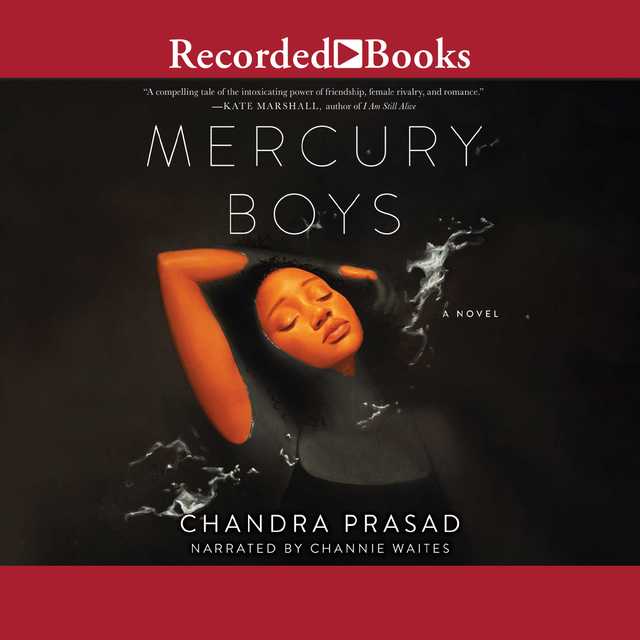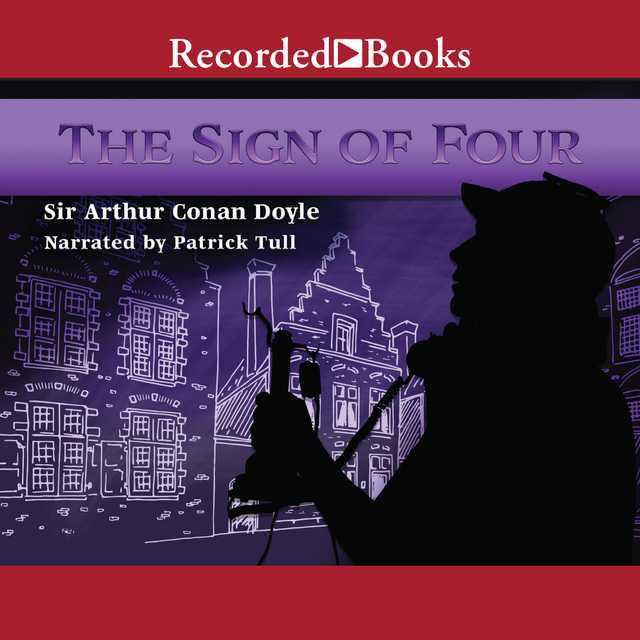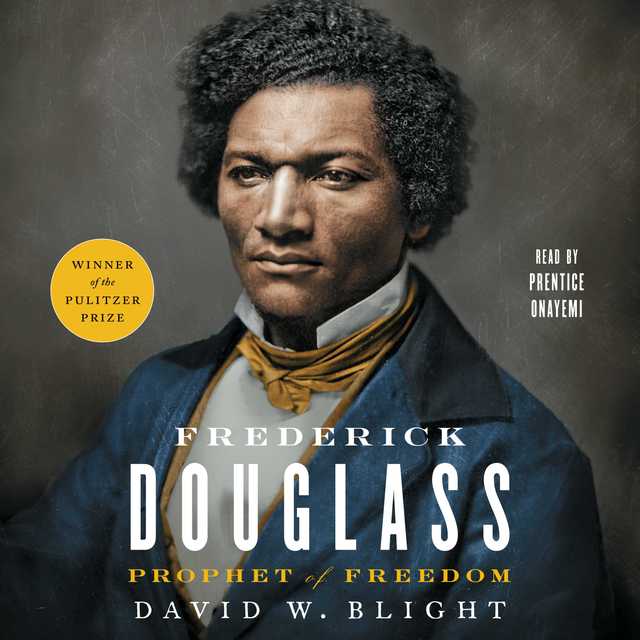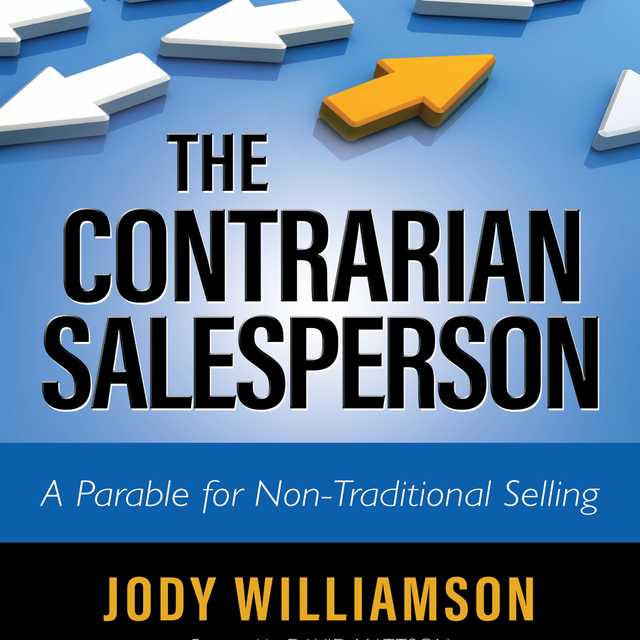Tropic of Capricorn Audiobook Summary
Banned in America for almost thirty years because of its explicit sexual content, this companion volume to Miller’s Tropic of Cancer chronicles his life in 1920s New York City. Famous for its frank portrayal of life in Brooklyn’s ethnic neighborhoods and Miller’s outrageous sexual exploits, Tropic of Capricorn is now considered a cornerstone of modern literature.
Other Top Audiobooks
Tropic of Capricorn Audiobook Narrator
Campbell Scott is the narrator of Tropic of Capricorn audiobook that was written by Henry Miller
Campbell Scott studied with Stella Adler and Geraldine Page, and appeared on Broadway in Long Day’s Journey into Night, among other productions. His many films include Longtime Companion, Singles, Music and Lyrics, and Big Night, which he co-directed.
About the Author(s) of Tropic of Capricorn
Henry Miller is the author of Tropic of Capricorn
More From the Same
- Author : Henry Miller
- Big Sur and the Oranges of Hieronymus Bosch
- Tropic of Cancer
- Publisher : Caedmon
- Dubliners
- Julius Caesar
- The Two Gentlemen of Verona
- The Tempest
- Measure for Measure
Tropic of Capricorn Full Details
| Narrator | Campbell Scott |
| Length | 12 hours 25 minutes |
| Author | Henry Miller |
| Publisher | Caedmon |
| Release date | May 05, 2009 |
| ISBN | 9780061721472 |
Additional info
The publisher of the Tropic of Capricorn is Caedmon. The imprint is Caedmon. It is supplied by Caedmon. The ISBN-13 is 9780061721472.
Global Availability
This book is only available in the United States.
Goodreads Reviews
Jeffrey
January 17, 2020
"I am so thoroughly healthy and empty. No dreams, no desires. I am like the luscious deceptive fruit which hangs on the Californian trees. One more ray of sun and I will be rotten." Henry MillerThe first thing, if you are lucky, that you discover about Henry Miller is that you shouldn't introduce him to your wife, your sister, your mother or any other female that you care to leave unsullied. He is like a bloodhound once he catches the scent of a female that he has not had carnal knowledge with. It wasn't that Henry made the best of first impressions, but give him time, give him an evening with a nun, and she'll be at the altar the next morning, still trembling from a night of degradation, renouncing or reaffirming her vows. Henry fought with his wife, the first wife, the one with the shovel face, like two piranhas caught in a barrel. If you have read any of Henry's books you know that he shares his life, everything, even the stuff that makes him look like a lout. "When I got home my wife was awake and sore as hell because I had stayed out so long. We had a hot discussion and finally I lost my temper and I clouted her and she fell on the floor and began to weep and sob. The girl upstairs came running down to see what was the matter. She was in her kimono and her hair was hanging down her back. In the excitement she got close to me and things happened without either of us intending anything to happen. (I didn't believe that part for a second.) We put the wife to bed with a wet towel around her forehead and the while the girl upstairs was bending over her I stood behind her and lifting her kimono. I got it into her and she stood there a long time talking a lot of foolish soothing nonsense. Finally I climbed into bed with the wife and to my utter amazement she began to cuddle up to me and without saying a word we locked horns and we stayed that way until dawn. I should have been worn out but instead I was wide awake, and I lay there beside her planning to take the day off and look up the whore with the beautiful fur whom I was talking to earlier in the day. After that I began to think about another woman, the wife of one of my friends. Henry is a man that is never satiated. One conquest launches him on a quest for the next one. With a clap on my shoulder and a squeeze Henry always has a new story that has me shaking my head. By comparison, I feel like my life is as boring as a Methodist sermon. Henry is living for all of us. Like every other fool I know...I've lent Henry money. Lent, that is rich, I'm still deluding myself. He doesn't repay a loan. He makes you forget you lent it to him in the first place. I remember one night when a mutual friend of ours explained the circumstances with Henry. "If you need a little money I'll raise it for you. It's like throwing it down a sewer, I know, but I'll do it for you just the same. The truth is, Henry, I like you a hell of a lot. I've taken more from you than I would from anybody in the world." Henry just grinned as our friend's hat passed around, and even people that had known him less than an hour tossed in a bit of green. It wasn't until we were leaving, weaving our own snake trail out the door, that my friend discovered that along with the money, Henry had also absconded with his hat.I was with Henry the night he met the nymphomaniac Paula. "She has the loose jaunty swing and perch of the doubled-barreled sex, all her movements radiating from the groin, always in equilibrium, always ready to flow, to wind and twist, and clutch, the eyes going tic-toc, the toes twitching and twinkling, the flesh rippling like a lake furrowed by a breeze. This is the incarnation of the hallucination of sex, the sea nymph squirming in the maniac's arms.", Needless to say I left by myself, but not before Henry touched me for a Jackson. I have never figured out if Henry is a coward or the bravest of the brave. He rejects the life that I spend so much of each day trying to build for myself. He didn't tell me this, but I found it in one of his books. "I realize quietly what a terribly civilized person I am-the need I have for people, conversation, books, theatre, music, cafes, drinks, and so forth. It's terrible to be civilized, because when you come to the end of the world you have nothing to support the terror of loneliness. To be civilized is to have complicated needs, And a man, when he is full blown, shouldn't need a thing." The thing of it is Henry couldn't be Henry except for the existence of people like myself who are always willing to buy him a drink and marvel at his stories. He is living off the efforts of "civilized" men and women. He doesn't have to own anything, because someone will always give him what he needs. "He had neither pride, nor vanity, nor envy. About the big issues he was clear, but confronted by the petty details of life he was bewildered." The Nasty GeniusThe thing of it is, despite his best efforts, Henry Miller became a useful member of society. He published books describing a life so unencumbered that even those of us perfectly satisfied with our soft lives, eking out a possession laden life of soulless corporate kowtowing, have doubts that we have chosen our lives wisely. Henry met this woman named June who hauled him off to Paris. JuneI don't get to hear his stories first hand anymore. I have to buy his books to find out what he has been up to. I miss Henry. He had me gaze upon the greener pastures on the other side of the fence, but he couldn't convince me to jump over and stay over. Every so often, despite his better financial circumstances, I still get a note from him with a plea for a few dollars for old time's sake. I, the dutiful enabling friend, always send him what I can spare. If you wish to see more of my most recent book and movie reviews, visit http://www.jeffreykeeten.comI also have a Facebook blogger page at: https://www.facebook.com/JeffreyKeeten
Vit
October 19, 2018
What does it take to become a writer? First of all a person must find one’s true self. And the process of searching can be very cynical. And true selves can be very different.Everything that happens, when it has significance, is in the nature of a contradiction. Until the one for whom this is written came along I imagined that somewhere outside, in life, as they say, lay the solutions to all things. I thought, when I came upon her, that I was seizing hold of life, seizing hold of something which I could bite into. Instead I lost hold of life completely. I reached out for something to attach myself to – and I found nothing. But in reaching out, in the effort to grasp, to attach myself, left high and dry as I was, I nevertheless found something I had not looked for – myself.The narration comes as a rave of a cynical lunatic… And this madman abides in the hallucinatory world of his own making. I was walking again in Dreamland and a man was walking above me on a tightrope and above him a man was sitting in an aeroplane spelling letters of smoke in the sky. The woman hanging on my arm was pregnant and in six or seven years the thing she was carrying inside her would be able to read the letters in the sky and he or she or it would know that it was a cigarette and later would smoke the cigarette, perhaps a package a day.And the narration comes as an obscene prayer to the goddess Astarte… Capricorn is a lascivious goat after all… And tropic is a gateway to the hottest and wettest equatorial zone…My eyes are useless, for they render back only the image of the known. My whole body must become a constant beam of light, moving with an ever greater rapidity, never arrested, never looking back, never dwindling. The city grows like a cancer; I must grow like a sun. The city eats deeper and deeper into the red; it is an insatiable white louse which must die eventually of inanition. I am going to starve the white louse which is eating me up. I am going to die as a city in order to become again a man. Therefore I close my ears, my eyes, my mouth.Henry Miller is grotesquely farcical and cynically truthful…These days truth is rare merchandise because it brings angst and anxiety but it is a merchandise any authentic writer must deal in.
Vincenzo
February 18, 2021
1. Bisogna leggere capolavori1.1 - Un mio amico dice che lui legge solo capolavori. Se si parla di cinema, dice che lui vede solo capolavori. Una volta gli ho chiesto: «Perché?». Lui ha risposto: «Perché esistono».1.2 - Non so se sia possibile leggere o vedere solo capolavori. Forse la mente ha bisogno di scemenze per apprezzare i capolavori, un po' come lo stomaco ha bisogno di junk food per apprezzare l'alta gastronomia. 1.3 - L'essere capolavoro potrebbe essere proprietà relazionale, non assoluta.1.4 - Il problema fondamentale dei capolavori non è la loro necessità o precedenza, ma la loro esistenza 2. I capolavori, come la verità, amano nascondersi2.1 - La verità si nasconde fra le pieghe della realtà, i capolavori si nascondono fra i moti ondosi della memoria2.2 - Il mio amico aveva a casa un capolavoro e non lo sapeva2.3 - Gli ho consigliato Henry Miller: mi ero completamente dimenticato di Henry Miller e mi ero completamente dimenticato di consigliarlo al mio amico 2.4 - Il mio amico è andato a comprare Tropico del Cancro, che io ho letto anni fa, mentre io prendevo a prestito dal suo scaffale Tropico del Capricorno3. I capolavori stanno all'ombra di altri capolavori3.1 - Quando la gente parla di Henry Miller, parla solo ed esclusivamente di Tropico del Cancro: è come se lui non avesse scritto altro3.2 - Tropico del Cancro getta un'ombra troppo lunga sull'opera straordinaria di Henry Miller3.3 - Inoltre, quando la gente parla di Henry Miller, parla delle sue scopate, delle sue porcate, di quante volte dice cazzo, di quante volte dice fica.3.4 - Da 2 e da 3.3, ne consegue che alcuni capolavori si nascondono in sé stessi.4. I capolavori parlano fra di loro4.1 - Henry Miller ha ereditato il suo modo di scrivere da Céline4.2 - Céline ha pubblicato Viaggio al Termine della Notte e poi una specie di prequel, che sarebbe Morte a Credito; Miller ha pubblicato Tropico del Cancro e poi una specie di prequel, che sarebbe Tropico del Capricorno; ma Tropico del Capricorno è diversissimo da Morte a Credito4.3 - Bukowski ha ereditato il suo modo di scrivere ubriaco da Henry Miller, che ha inoltre ispirato molti della Beat Generation, che a loro volta ispireranno i post-modernisti4.4 - Céline è il padre della letteratura americana5. Chi scrive capolavori, parla coi morti5.1 - Tropico del Capricorno è un delirio surrealista, ed è bellissimo5.2 - Henry Miller cita esplicitamente i surrealisti5.3 - In Tropico del Capricorno ci sono anche citazioni ed omaggi indiretti: Miller è un'omicida come Hemingway, ma più incosciente, perché bambino e puro5.4 - Chi scrive capolavori deve parlare coi defunti usando il linguaggio della menzogna, perché la verità è solo una minima parte della realtà (cfr. 2.1)6. Chi legge capolavori, guarda in faccia la morte6.1 - Ho letto Tropico del Capricorno come Henry Miller leggeva i surrealisti francesi: come in un sogno in cui capisco alcune cose di me6.2 - Come Alfred Hitchcock acquisì dignità cinematografica grazie agli studi critici di Truffault e degli altri registi della Nouvelle Vague, così Henry Miller deve la sua fortuna ad Anaïs Nin e a Parigi6.3 - Henry Miller fece fortuna a Parigi perché questa città ha il volto della morte6.4 - Gli Stati Uniti, New York e soprattutto Broadway sono la morte, ma fanno finta di non saperlo7. Su ciò di cui non si può scrivere è meglio lasciarci una pagina bianca
وائل
September 02, 2013
Although this novel less famous than tropic of Cancer - for example 8,174 ratings, 309 reviews against 26,082 ratings, 1,465 reviews in goodreads - But it's the better one.When i read Tropic of Cancer i were prepared to all the beauty in it, I read it many years ago translated into Arabic, read many articles about it, But with Tropic of Capricorn - as i thought that Miller is a one work artist - it was like an aesthetic shock. Again the beautiful language, again the charming prose, I'm ready now to read Miller's writing about anything even an advertising catalog.As in Tropic of cancer Miller talking about a lot of nonsense matters, But it is always how you talk about something not the thing itself that makes the great literature and art.Some of the most amazing parts which delighted me are:- The employees of the telegraph company that he wrote his worst work about them.- The beautiful description of a day in his life.- kronski's expecting him to be a great writer, And here i must express my admiration of Miller's believe in himself.- All events related to Curley.- His description of the real friendship when talking about Roy Hamilton.- How Dostoyevsky and Bergson's book "Creative Evolution" effect his life.- How his friend lend him money with love and lecture.So why i didn't give it the 5 stars, because sometime Miller seems to lost the concept which he discuss and only remain the beautiful language which isn't a small element but not every thing.
Julie
December 07, 2014
Everything I ever said about Henry Miller is NOT true. I was a senseless child when I read The Tropic of Cancer and I thought he was a machist and so on and you know what? I want to read the freaking Tropic of Cancer again! And now I sole it so I have to buy it again! damn youuuuuuu. But I had the book in Portuguese though and I want to read it in English, so it was not so bad after all. Anyway, it was one of the happy moments of 2014: recognizing that Henry Miller is an intelligent, sensitive human-being and that I want to read more from him. There was so many beautiful sentences in this book and brilliant thoughts and ways of living your life. It was very introspective for me. I am normally a fast reader but this book took me 3 weeks or something and it was only because it was so dense and profound for most of the time. loved it! really really loved it. Thanks for your insights Mister Miller! It doesn't feel so bad anymore to think of yourself as kind of alienated and for wanting more out of life and for not fitting into boxes. I think the quotes I added from this book speak for themselves.
henry
July 28, 2012
This was the first Henry Miller book I ever read, and until I read The Rosy Crucifixion, I considered it his best. Most readers and critics seem to focus on the sexual aspects of Miller's work, or else the profanity, or that his work was autobiographical, and they tend to say that his work isn't relevant to a 21st Century audience. I disagree; while his language might be more suited to an audience from an earlier time, and his cynicism and sexual explicitness might put readers off (personally, I think his sex scenes were poorly written and the least important aspect of his work), his ideas, especially concerning his life as an artist, are more relevant and illuminating than anything the publishing industry has vomited out in the last twenty years.
Dolly
February 10, 2011
It is no mean feat to take-away from a book an erudition. Reading Henry Miller’s work schooled me into realising that there really is “only one great adventure and that is inward towards the self”. And, more importantly that inveterate boozing and smoking, carousing, quixotic philandering and riding life out “on the wind of the wing of madness” like one has “iron in the backbone and sulphur in the blood” is elementary in the success of that adventure; and the manumitting of oneself from the ne plus ultra drudgery of life. And for that, and the fact that his writing always remained "true, sincere" and "on the side of life" and he an old roué throughout, I love him: earnestly, completely. I read “Tropic of Cancer”, and subsequently the “Rosy Crucifixion Trilogy”, some years ago, and thus was ecstatic to find Miller in my favourite Oxfam. One of the things I discovered, by sheer coincidence, prior to reading “Tropic of Capricorn” was that both the aforementioned and “Tropic of Cancer” were Miller's choice sobriquets for his second wife June Mansfield Smith’s breasts. And for that I love him also. “Tropic of Capricorn” opens with a pronunciamento that, "Once you have given up the ghost, everything follows with dead certainty, even in the midst of chaos", a line of thought, that denotes the perspicuous resignation of the disillusioned. And Miller’s voice gets even more intractably dour a jot or two down the page when he confesses that, “Even as a child, when I lacked for nothing, I wanted to die: I wanted to surrender because I saw no sense in struggling. I felt that nothing would be proved, substantiated, added or subtracted by continuing an existence which I had not asked for.” The realisation about the innate lack of purpose and “the stupidity and futility of everything” reverberates throughout as Miller expounds at length about working dead-end jobs inimical to his creative freedom, being a myrmidon to his superiors at the redoubtable Cosmodemonic Telegraph Company of North America - a “hideous farce against a backdrop of sweat and misery… a waste of men, material and effort” - and ploughing against the “whole rotten system of American labour” while sitting behind his work-desk “hiring and firing like a demon”. Chronically impecunious despite full time employment with the Western Union and feeling no fealty to anyone or anything, Miller chronicles this time in his life, spent mostly with a retinue of factotums and waybills – all trapped in a system that was so rotten, so inhuman, so lousy, so hopelessly corrupt and complicated, that it would have taken a genius to put any sense or order into it, to say nothing of human kindness or consideration – with both animus and amity. Forced by his superiors to be “be firm, be hard!” instead of having “too big a heart”, Miller sticks it to the avaricious panjandrums and vows to be “be generous, pliant, forgiving, tolerant, tender”. Everything in “Tropic of Capricorn” is perched on a pedantically balanced scale, just as Miller’s prose, which jumps from fatalistic cynicism to Panglossian mirth, the sagacious to the fecund, the overzealous to the insouciant, the recidivistic to the enterprising, thereby mirroring his life which consists of nothing but “ups and downs…long stretches of gloom and melancholy followed by extravagant bursts of gayety, of trancelike inspiration.” And it is precisely this deft linguistic ability, albeit occasionally blemished by overindulgence in periphrasis and even unabashed flummery, to relay his variegated reminiscences so graphically and candidly that incites a sense of grandstand awe. Above all other subjects, however, Miller spends a lot of time lamenting and lambasting his homeland, the “monstrous death machine” where “nobody knows how to sit on his ass and be content.” His avid hatred of the US is documented with effusive graphic proclivity and an unapologetic conviction, for as he sees it he had never anywhere “felt so degraded and humiliated as in America”. Miller expectorates vehemently about the country he calls a “cesspool” where “everything is sucked down and drained away to everlasting shit”, before asserting that everything he had “endured was in the nature of a preparation for that moment when, putting on my hat one evening, I walked out of the office, out of my hitherto private life, and sought the woman who was to liberate me from a living death.” The woman sought was Miller’s second wife, June Mansfield Smith, the great nostrum who turned into an obsession leading to his emotional labefaction. June was the one who convinced Miller to jack-in his job and take up writing full time while she machinated a variety of schemes to support them financially, whether parading around dance halls, running a speakeasy or collecting money from services rendered. Writing of her elsewhere, Miller once noted: "I'm in love with a monster, the most gorgeous monster imaginable." And, she was a monster. Or to be more precise “a monstrous lying machine” one with a striking bloodless face, rouged lips, a penchant for Dostoyevsky and indiscriminate fucking. Intrepid, perfidious, prone to theatrical exaggeration and acidulous lies June became the archetypal femme fatal in Miller’s literary endeavours. Their connubial life was marked by volatility, mutual jealousies, June’s mercurial vagaries, and eventually their great big love was reduced to something like a “soft prick slipping out of an overheated cunt.” When the two first met, however, they were as one like “Siamese twins whom love had joined and whom death alone could separate.” But it was not to be. The inchoate despair comes to the surface in “Tropic of Capricorn” when Miller begins to realise that June is prone to “transformation; almost as quick and subtle she was as the devil himself”, later likening her to the “queen mother of all the slippery Babylonian whores,” for she was just as inconstant. Their love was intense, both in a spiritual and physical sense, with Miller once describing her in copulation like a wild creature “radiant, jubilant, an ultra-black jubilation streaming from her like a steady flow of sperm from the Mithraic Bull. She was double-barrelled, like a shot-gun, a female bull with an acetylene torch in her womb. In heat she focussed on the grand cosmocrator, her eyes rolled back to the whites, her lips a-saliva. In the blind hole of sex she waltzed like a trained mouse, her jaws unhinged like a snake's, her skin horripilating in barbed plumes. She had the insatiable lust of a unicorn,” but one he couldn’t tame. In turn, he became “possessed like a full blooded schizerino” while she taunted him by launching her powers “toward the fabrication of [herself as] a mythical creature” and whoring like a nymphomaniac on day release from AA because she simply didn’t “give a fuck about anything”. The two split eventually, and the ruptures in the relationship are documented toward the end of the book with melancholic retrospection, and thereafter in Miller’s later works. June remained a permanent fixture throughout Miller’s early years, indelibly looming over his life and his literature. Her spectres is firmly entrenched in the “Tropic of Capricorn”, but mostly the book is about Miller himself – the scatologist who is transfixed by shit, vermin, booze, fucking and disease, albeit one who has an inexorable knack for finding poetry in the grotesque. And he does, without fail, in “people's stories, the banal tragedies of poverty and distress, of love and death, of yearning and disillusionment”. Miller is not frugal with the scope of his subject matter either. He writes about everything from eating meat balls to eating pussy by way of St. Thomas Aquinas, who omitted from his opus “hamburger sandwiches, collar buttons, poodle dogs, slot machines, grey bowlers, typewriter ribbons, oranges sticks, free toilets, sanitary napkins, mint jujubes, billiard balls, chopped onions, crinkled doilies, manholes, chewing gum, sidecars and sour-balls, cellophane, cord tyres, magnetos, horse liniment, cough drops, feenamint, and that feline opacity of the hysterically endowed eunuch who marches to the soda fountain with a sawed off shotgun between his legs.” Not to mention the strip-teasers with nothing more than “a little patch to cover their twinkling little cunts”. And his turn of phrase remains truly unique with asides and observations such as: “The chaff of the empty soul rising like monkey chatter in the topmost branches of the trees,” and “...music is a diarrhoea, a lake of gasoline, stagnant with cockroaches and stale horse piss,” or “the black frenzied nothingness of the hollow of absence leaves a gloomy feeling of saturated despondency not unlike the topmost tip of desperation which is only the gay juvenile maggot of death's exquisite rupture with life,” and “We are of one flesh, but separated like stars” and “Look at your heart and gizzard - the brain is in the heart.” Gems like these stud his stream-of-consciousness prose from start to finish. You might scowl or snigger as he wrestles with the salacious and the sad, but you will not be unaffected. As a follow up to “Tropic of Cancer”, Capricorn ruminates over the same old grounds, “speaking about what is unmentionable” and according to Miller “what is unmentionable is pure fuck and pure cunt” and must not be mentioned “otherwise the world will fall apart.” But of course sex is not the only unmentionable subject that Miller mentions, in fact, he pontificates on every topic that springs to mind while “rubbing elbows with humanity”, realising “truth is not enough,” watching men “scurrying through a cunty deft of a street called Broadway”, and claiming that “heartbreaks and abortions and busted romances,” are nothing in comparison to lousy coffee; and the result is this sagacious irreverent hulk of a picaresque. But I think Miller’s work is summarised best by the thought that in any great book “Each page must explode with the profoundly serious and heavy, the whirlwind, dizziness, the new, the eternal, with the overwhelming hoax, with an enthusiasm for principles or with the mode of typography.” Henry Miller’s work certainly does. © Dolly Delightly 2011
Lynne
December 24, 2013
Seeing Jeffrey's excellent review reminded me how much I admired some of Miller's works, especially his letters to Lawrence Durrell and the Colossus of Maroussi.
Eliana
August 31, 2016
La oportunidad más maravillosa que ofrece la vida es la de ser humano. Abarca todo el universo. Incluye el conocimiento de la muerte, del que ni siquiera Dios goza (p.226).Trópico de Capricornio me ha gustado más que su antecesor. Aquí hay más espiritualidad, filosofía y reflexión. También hay más sexo, escenas repugnantes, sífilis, machismo, miseria, pobreza. Pero es una novela genial, intensa, absorbente, que te deja con un vacío y con muchas preguntas. Es una novela que te hace explotar la cabeza, porque es como una explosión.Seguimos la vida ficcionalizada de Henry Miller, su vida como jefe de personal en una compañía de telégrafos y de sus amistades, salidas, vida familiar, prostitutas, su odio por Estados Unidos, sus reflexiones sobre la vida que lleva, sus recuerdos de infancia, entre muchas otras cosas. Es divertido el relato que hace, pues en ocasiones resulta un tanto absurdo, irónico y estúpido. La pasión de Miller por el sexo es importante, porque aunque la novela no gire en torno al sexo, tiene gran relevancia en su vida y en las reflexiones que hace sobre la misma. Yo lo llamaría como una especie de sexo-místico, porque hay cierta espiritualidad en lo que quiere vivir Miller y en lo que es su filosofía de vida: decir sí a todo, porque es la única forma de poder vivir honradamente como hombre y ser humano. Darlo todo a la humanidad, entregarse desbocadamente.Si vieran el montón de post-its que utilicé, más los subrayados, se sorprenderían. Cada frase es más ¡wow! que la otra, es impactante. Como por ejemplo: A mi entender, el significado de un libro radica en que el propio libro desaparezca de la vista, en que se lo mastique vivo, se lo digiera e incorpore al organismo como carne y sangre que, a su vez, crean nuevo espíritu y dan nueva forma al mundo (p.218). O también: La delicia mayor, pero rara, era caminar por las calles a solas..., caminar por las calles de noche, cuando estaban desiertas, y reflexionar sobre el silencio que me rodeaba. Millones de personas tumbadas boca arriba, muertas para el mundo, con las bocas abiertas, que sólo emitían ronquidos. Caminar por entre la arquitectura más demencial que jamás se haya inventado, preguntándome por qué y con qué fin, si todos los días tenía que salir de aquellos cuchitriles miserables o palacios magníficos un ejército de hombres deseosos de desembuchar el relato de su miseria (p.66)..Miller es una figura importante de la literatura norteamericana. Escribió los dos Trópicos... en los años 30. Se nota su influencia en la generación beat, aunque creo que él es un poco más simple en lo que quiere expresar. También se siente un poco surrealista, pero sus escritos tienen más sentido que lo que se ve en la escritura automática de este movimiento. Estas son novelas para sorprenderse y dejarse llevar. Es para abrir la mente, porque es una explosión.
Theo
January 06, 2023
In certain respects this work supersedes that of Cancer. If Cancer is a work that revolves around fluids, around the Seine, around piss, spermatozoa etc. then Capricorn is one of solids. In Brooklyn we find ourselves forced to go toward the spiritual Land of Fuck, in the Southern States we are forced to contend with arid landscapes and racial tensions so tense that they could kill a man through a mere gaze. The best way to describe the work is to highlight Miller’s own self described evolution from skater to swimmer to rock. Having broken through the futility of Dante’s ice, Miller quits the skating shtick and joyfully dives in to the freshly thawed oceans, before realising that one must become immutable at the very depths of the ocean. One must paradoxically be bone dry surrounded by the sea, a lighthouse that stands strong against the ensuing waves.So yeah, this shit was pretty fucking good. Especially loved whenever he brought up Dostoevsky, Bergson or Nietzsche, it’s fun to see what he reads into them.
Adrian
February 06, 2017
Ca un carusel. Un montaigne rousse pe care pleci agale, ridicându-te pe culmi și apoi coborând amețitor prin tot felul de rotații, alte șuișuri și coborâri adânci și abrupte. Asta aș putea spune despre Tropicele lui Henry Miller.Privind retrospectiv ambele lecturi, mă simt ca și coborât dintr-un astfel de monstru de distracții. Pline de adrenalină, de trăiri, de gânduri, de filozofie jucăușă, cu erotism dus la obscen, cu efuziuni de lirism și imagini puternice, printre care se strecoară diferite contradicții tipic dadaiste. Iată mașinăria milleriană.Pentru Miller, unde ai zice că-i autobiografie în cazul ambelor cărți, este de fapt o distorsiune a realității și ficțiunii, o punere a acestora într-un malaxor din care iese o compoziție cel puțin ciudată.Tropicul Capricornului vine în susținerea celuilalt tropic (Tropicul Cancerului) publicat în 1934. Apărut în 1939, după romanul Primăvara Neagră, după așezarea lui la Paris, Miller exploatează prima parte a vieții acestuia, cea de dinainte de marea mutare pe vechiul continent, unde descoperă marea menire, marea descătușare, marea plecare. Privind atipic modernismul și facerile modernității, naratorul se detașează prin trăiri intense, făcând uz de realitate pentru a o străpunge prin cele mai sensibile puncte, mai ales cele morale.Restul aici: http://adispune.ro/henry-miller-tropi...
Frequently asked questions
Listening to audiobooks not only easy, it is also very convenient. You can listen to audiobooks on almost every device. From your laptop to your smart phone or even a smart speaker like Apple HomePod or even Alexa. Here’s how you can get started listening to audiobooks.
- 1. Download your favorite audiobook app such as Speechify.
- 2. Sign up for an account.
- 3. Browse the library for the best audiobooks and select the first one for free
- 4. Download the audiobook file to your device
- 5. Open the Speechify audiobook app and select the audiobook you want to listen to.
- 6. Adjust the playback speed and other settings to your preference.
- 7. Press play and enjoy!
While you can listen to the bestsellers on almost any device, and preferences may vary, generally smart phones are offer the most convenience factor. You could be working out, grocery shopping, or even watching your dog in the dog park on a Saturday morning.
However, most audiobook apps work across multiple devices so you can pick up that riveting new Stephen King book you started at the dog park, back on your laptop when you get back home.
Speechify is one of the best apps for audiobooks. The pricing structure is the most competitive in the market and the app is easy to use. It features the best sellers and award winning authors. Listen to your favorite books or discover new ones and listen to real voice actors read to you. Getting started is easy, the first book is free.
Research showcasing the brain health benefits of reading on a regular basis is wide-ranging and undeniable. However, research comparing the benefits of reading vs listening is much more sparse. According to professor of psychology and author Dr. Kristen Willeumier, though, there is good reason to believe that the reading experience provided by audiobooks offers many of the same brain benefits as reading a physical book.
Audiobooks are recordings of books that are read aloud by a professional voice actor. The recordings are typically available for purchase and download in digital formats such as MP3, WMA, or AAC. They can also be streamed from online services like Speechify, Audible, AppleBooks, or Spotify.
You simply download the app onto your smart phone, create your account, and in Speechify, you can choose your first book, from our vast library of best-sellers and classics, to read for free.
Audiobooks, like real books can add up over time. Here’s where you can listen to audiobooks for free. Speechify let’s you read your first best seller for free. Apart from that, we have a vast selection of free audiobooks that you can enjoy. Get the same rich experience no matter if the book was free or not.
It depends. Yes, there are free audiobooks and paid audiobooks. Speechify offers a blend of both!
It varies. The easiest way depends on a few things. The app and service you use, which device, and platform. Speechify is the easiest way to listen to audiobooks. Downloading the app is quick. It is not a large app and does not eat up space on your iPhone or Android device.
Listening to audiobooks on your smart phone, with Speechify, is the easiest way to listen to audiobooks.

